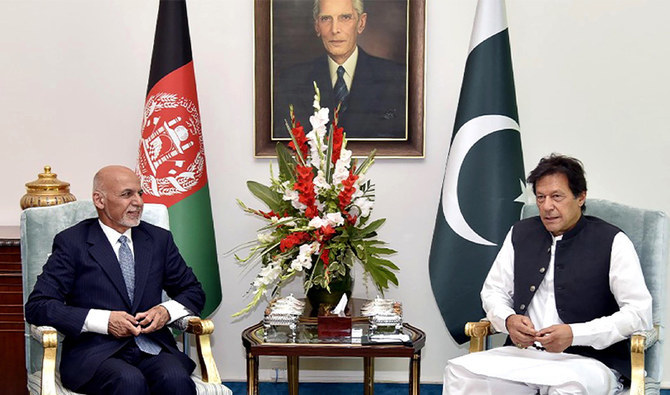ISLAMABAD: Pakistan Prime Minister Imran Khan is leaving for Afghanistan on Thursday for talks on the Afghan peace process, the PM’s office confirmed.
Khan's Kabul visit is on the invitation of Afghan President Ashraf Ghani and will be his first trip to Afghanistan since assuming office in 2018.
“The focus (of the visit) would be on further deepening the fraternal bilateral relations between Pakistan and Afghanistan, the Afghan peace process, and regional economic development and connectivity,” the PM's office said in a statement on Wednesday.
During the trip, Khan is going to meet with Ghani who visited Pakistan in June 2019. Earlier, the two leaders met on the sidelines of the 14th Organization of Islamic Cooperation Summit in Makkah in May 2019.
Foreign Minister Shah Mahmood Qureshi and the prime minister’s adviser on commerce, Abdul Razak Dawood will be in the delegation.
Prime Minister Imran Khan visiting Kabul tomorrow for meeting Afghan President Ashraf Ghani to discuss strengthening of bilateral ties @PakEmbKabul pic.twitter.com/23f4cCAU56
— Mansoor Ahmad Khan (@ambmansoorkhan) November 18, 2020
The prime minister will travel to Afghanistan at a time when ongoing peace negotiations between the Afghan government and the Taliban have hit a stalemate and violence is on the rise. Afghan officials and the United States — which is facilitating the peace talks — believe that Pakistan has influence over the Taliban and can convince its top leaders to move toward a ceasefire.
“The people of Pakistan and Afghanistan are linked through immutable bonds of history, faith, culture, kinship, values and traditions. The Prime Minister’s visit will help foster a stronger and multi-faceted relationship between the two brotherly countries,” the PM office's statement said.
Dawood is already in Kabul for talks on bilateral trade relations and the Afghanistan-Pakistan Transit Trade Agreement (APTTA), which allows Kabul to use Pakistan’s land to transport goods to India.
Pakistan and landlocked Afghanistan had signed a transit trade agreement in 1965 that was revised in 2010 to help facilitate movement of goods between the two countries.
The next APTTA meeting is going to take place in Islamabad in December.

















